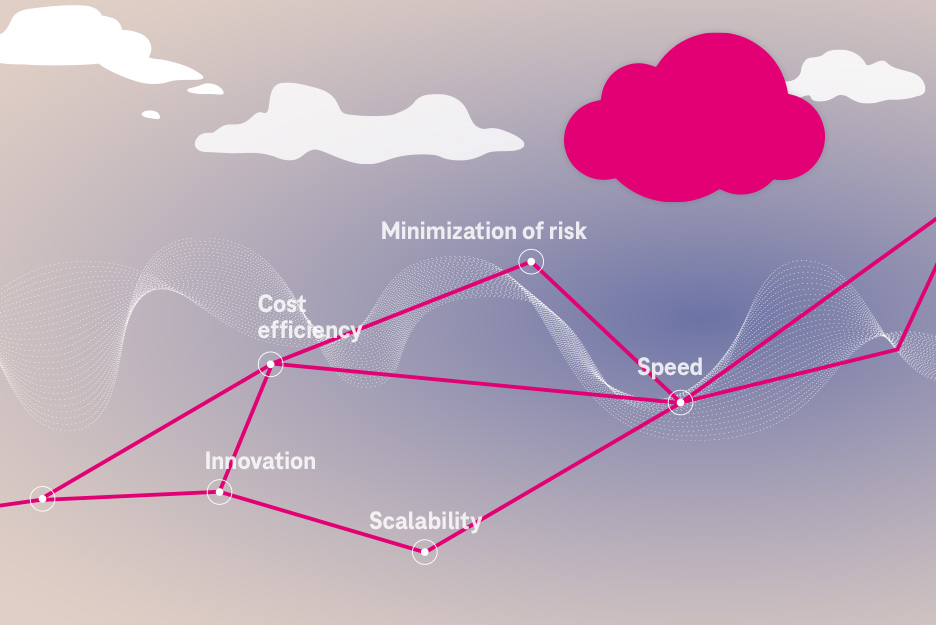In this article you will read about,
- what cloud computing is,
- what service models are available,
- and what advantages cloud computing offers companies.
Whether real-time digital collaboration, the use of data-intensive AI solutions, cloud ERP systems, or customer management from A to Z: cloud computing has become an indispensable technology that enables companies to flexibly use their IT resources more efficiently. The basic principle is simple: companies use IT resources via the internet whenever they need them without having to invest in their own hardware - for example via the Open Telekom Cloud. But what exactly is cloud computing and why does it play such a crucial role in the modern business world? Find out in this article.



